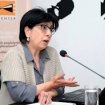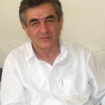The Karabakh Conflict in the Context of Political Processes in Armenia and Azerbaijan - 2018: Page 8 of 11
way, very mythologized. In the conflicting countries, the role of the diaspora is greatly overestimated. Especially, of course, in Azerbaijan. Simply because the traditions of the Armenian Diaspora have a longer history. I can remember the first congresses of the Azerbaijanis conducted by the late Heydar Aliyev. They were imbued with the pathos of the necessity to “learn solidarity” from Armenians. In fact, no Political Bureau or Central Committee of the Diaspora exists. And it could hardly exist. During my lectures, I mention that only in Russia the Armenians represent at least 3 countries (Armenia, Russia and Georgia, although there are also citizens coming from Ukraine and Moldova, who live among us). They have different passports, citizenships, goals, tasks, and social status. And the gap between Ara Abrahamyan and uncle Ashot, the cobbler, is huge. As the gap between the Dashnaks in California and the Union of the Armenians in Russia exists. It is wrongful to consider that this is a unified force. Moreover, the same “Armenian lobbyism” has a counterbalance in the form of an oil lobby, every conventional Abrahamyan is counterbalanced by its own conventional Alekperov. At some points, the lobby could be effective (if we recall, for example, Amendment 907 to the Freedom Support Act). But the context around the origin of any amendment, declaration, and so on should be considered. In the early 1990s the United States perceived Karabakh as an anti-communist and anti-Stalinist protest, and the Azerbaijani authorities during Elchibey's rule were perceived as a nationalist force. In this case, I don’t claim that that was true, I mean that it is all about stereotypes and perception. With Heydar Aliyev coming to power, the situation began to change, the “Contract of the Century” appeared in 1994, and many idealistic issues were supplemented by pragmatism. And the very amendment was additionally amended. So I would not overly dramatize or overestimate the stories, connected with lobbyism or the diaspora factor. Let's also not forget that the Armenians and the Azerbaijanis living abroad are often loyal citizens of their countries. And they declare themselves patriots of their countries, remaining true to their national interests. Take, for example, a casus with political scientist Gevorg Mirzayan. There have been so many disputes in Armenia around him, his positions, his amazement, the way an ethnic Armenian argues strongly over such “canonical” plots as the assessment of the events in the Ottoman Empire in the early 20th century or in Karabakh today.
Arif Yunusov - An interesting question regarding lobbying. Well, it is difficult to talk about Armenian lobbying. As there are many myths about the role of the Diaspora. But it is clear that the Armenian Diaspora has a long history and the corresponding political structures have long been formed. And there is a connection between Armenians in Armenia and Karabakh and Armenians in the Diaspora. Even during the recent events in Armenia, we happen to read that many Armenians from the Diaspora are coming back to take part in those events. Of course, it was not them that played their part in







 +37410 563363
+37410 563363
 1/3 Buzand Str, 8 Floor, Yerevan, Armenia
1/3 Buzand Str, 8 Floor, Yerevan, Armenia